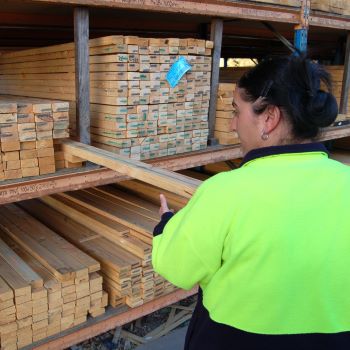Day to day responsibilities

When a customer says they have just bought a good quality product, they really have a lot of people to thank. In the case of a manufactured timber product, for instance, the process of monitoring its quality starts with the harvester, then goes to the sawmiller, the wholesaler, the manufacturer, and finally ends up with the retailer.
That’s why everyone involved in the process needs to be concerned about quality. At any point in the supply chain, the quality of a product could be seriously affected and even destroyed if someone doesn't do their job properly and keep a watchful eye on their own part of the process.
Because everyone in the supply chain is responsible for some aspect of quality, it’s important that each person's role is clearly defined and understood, and that everyone knows exactly what their responsibilities are, and how their job fits in with those around them.
The quality control responsibilities of a job are generally written up in the job description. Remember that quality control doesn't just relate to the products that the company produces.
For example, for a salesperson, quality control might include following up on customer enquiries within a certain time. And for an administrative clerk it might include double-checking the calculations on invoices.
The quality of every product or service provided by a business needs to be monitored and assessed at each stage of its production or delivery. So it stands to reason that each person involved in this chain of events plays a role in the process of quality control.